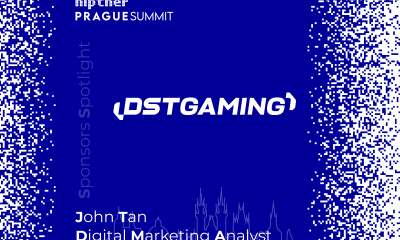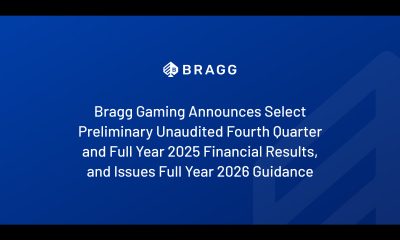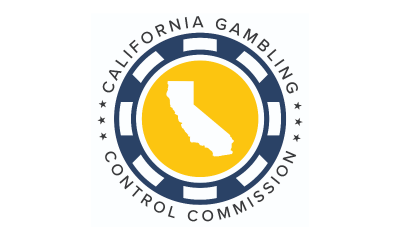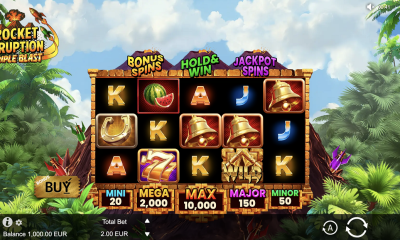Interviews
European Gaming Streamers Roundtable

Participants
Michael Pedersen, CCO at Livespins
Will Barnes, Owner at Hideous Slots
Bryan Upton, Founder at Lucksome
David Mann, Chief Commercial Officer at Swintt
There is no question that online slot streaming is enjoying a meteoric rise in popularity? What are you doing to leverage the potential it provides?
Michael Pedersen, CCO at Livespins
We have launched an entire company with the sole purpose of leveraging the meteoric rise of online slot streaming, Livespins. For a long time, people have been asking if online casino can be social, but you only have to look to Twitch to see that it absolutely can be. To date, there have been more than 280 million hours of streaming footage consumed in the slots category and the chat is on fire. With the hypothesis well and truly proved, we launched Livespins to take this a step further by allowing players to get in on the action by betting behind the streamer and to also offer operators and developers a reputable, compliant platform via which they too can capitalise on the popularity of streaming. We really are going all-in on this as, ultimately, we believe that it is the future of online casino.
Will Barnes, Owner at Hideous Slots
Hideous Slots was always meant to be about community, and the live streams themselves are really at the core of audience engagement. I consider that streaming and video promotion has already overtaken traditional methods of content discovery amongst key demographics. For me, this means using online streaming to achieve the things that would previously have been achieved elsewhere – for example, remembering to lead viewers to your website through streams, comments and Live Chat has now become just as important as traditional SEO. Working with game providers is becoming more common for streamers – as you’ve said, online slot streaming is massively on the rise, and streamers are now proving to be one of the most direct tools in marketing. But we still need to maintain our integrity and the trust of the audience – so commentary on specific products must always fair and balanced.
Bryan Upton, Founder at Lucksome
Not enough would be the honest answer. We are a small and new studio going through a normal start-up process of improvement, scaling and hitting our rhythm. I would say that we are building Slots that the streaming community would have an affinity for. Voodoo Temple, our latest slot has a lot of punch and enough big wins behind it in the first week of launch to have proven that. This is a starting point at least. Now, for us it’s about getting our games and brand in front of the streamers around the world and letting them do what they do best – play and entertain. We are just starting to push in this direction and learning how this part of the industry is working. With this meteoric rise, has come a premium for streamers’ time, and that is something smaller studios like Lucksome would need to understand in terms of return before taking that cost on. Is there some solid data on this to prove the business case? It would be great to be able to have those discussions, and how to help the younger, innovative studios into the limelight.
David Mann, Chief Commercial Officer at Swintt
I agree that the popularity of slot streaming is increasing every month. And for us, as a slot supplier, it is very important that the streaming community knows about our game releases so they can share our latest titles with their followers. A good relationship with the streamers that share the same culture and beliefs as the studio is key as this ensures they are aware of new games coming to the market. However, it is also important to release games that are liked by the community that follows the streamers, because ultimately big wins are what are people interested in. So high volatility games with high max wins should definitely be a part of the portfolio of anyone who wants to succeed in gaining visibility for their games among streamers and their audiences.
We are seeing some studios build out their own teams of streamers. What are the pros and cons of doing this?
Michael Pedersen, CCO at Livespins
I am a great believer in knowing what you are good at and making that your focus. Game studios are great at developing engaging and entertaining slots and that is where they should deploy their resources. They can then partner with streamers or platforms such as Livespins and get in on the action that way. Of course, this means that streamers and streaming platforms need to be driving progress.
The way I see it, live streaming consists of two parts – the technical and the human. Over time, everyone will nail the technology but because there is such a reliance on the human element this is where the real difference will be made. That is why at Livespins we provide our streamers with access to coaches, props, themes, etc and this is something that studios will struggle to do while also ensuring their games continue to top the charts.
Will Barnes, Owner at Hideous Slots
I think the biggest advantage of building your own team is that you’re going to have complete control over the content. Ultimately the engagement will always be with the individuals on screen and I think this might be difficult to manage if things become successful. The danger will always be that people are tuning in for the influencer and not the brand itself. An associated issue is that social media success often involves interaction across platforms and this can be a 24/7 job. Motivating a team to make personalised social media posts, and to be passionate about your product would be a challenge – especially when competing against streamers who are offering this with ease. To really enjoy success, you need to find someone who is not just passionate about entertaining, but also passionate about engaging with the audience, and passionate about the gambling!
Bryan Upton, Founder at Lucksome
The pros are pretty obvious, if you set up something well, you gain influence and the exposure of your games, which all studios, big and small need and want. It would also create a stream of solid and direct feedback on a segment of the market to allow you to hone your product even more. The cons, personally I think the truly GREAT streamers are not just the ones that are fun to watch but are also authentic and independent. Meaning they play everyone’s games, they play the games they love, the games their audience love. Asking them to play a game they don’t like falls flat on the stream and the watchers feel it. If you have your own streamer set up, you need to make sure what you’re producing in terms of content is spot on for the community you are serving and your streamers really need play other competitor games as well – otherwise you’ll lose the audience. I guess another con is scale. You’ll need a lot of people to tackle those important local markets, Italy, German speaking, Spanish etc etc. In the same way as a provide you try to push your games all over the world, you would want your reach and influence to match. I would say that is out of reach for smaller studios and a different business to that of running a game studio. I think it would be great to see some stronger relationships between streamers and suppliers to produce some great original content and experiences – so there is something to be had there.
David Mann, Chief Commercial Officer at Swintt
I believe studios that build a team of their own streamers lose the legitimacy and trust of the viewers because it is very probable that in-house streamers will not criticise the studios’ games even if they are not up to standard. However, by having your own team of streamers, you a studio can ensure that all of their games are played and see the light of the streaming community. So, there are pros and cons to both, but if studios want to engage and entertain players in an authentic way it is important for streamers to remain independent.
Just how difficult is it to launch streaming channels and build sizable audiences? What are the key challenges faced and how can they be overcome?
Michael Pedersen, CCO at Livespins
Livespins is a very different beast. We are not an affiliate streamer and we do not depend on building large audiences and a loyal community of fans. This is because we integrate directly with an online casino operator and engage with their existing player base. For affiliate streamers, it is insanely difficult to launch a channel and build a sizeable following, and then also convert that following into paying players at partner online casino brands. That is why Livespins is so innovative – it allows operators to capitalise on the popularity of streaming by offering it to their players and by also letting them bet behind the action taking place across the reels.
Will Barnes, Owner at Hideous Slots
Launching a channel comes with a number of challenges, and the most significant challenge is building an audience. Often, finding those first 20-30 viewers comes quite easily – friends, friends of friends, or those who enjoy the high level of engagement that a smaller stream can provide. Again, once you surpass 150-200 viewers, growth is more consistent, as your content is pushed out by YouTube and Twitch organically. But between 30-150 viewers is a real struggle, and I think the quickest way to overcome this hurdle is to try and offer something a bit different, and to keep trying. Keep showing up, keep offering somewhere for people to join together, and hope that eventually these numbers continue to grow. There’s no shortcut to building huge numbers – it’s about being authentic, and if you have something interesting or unique enough, eventually it will pay off.
Bryan Upton, Founder at Lucksome
We are seeing this continued trend in European markets of high volatility game play – but we have hit the ceiling in terms of how much we can push this, factors from high exposure to the Operators and squeezing of margins with very harsh, high risk math profiles are, in my opinion, creating the beginnings of player fatigue and burnout and reticence from the industry. I feel player tastes are settling into a happy medium between the extremes that our industry tends to have an affinity with, with is a good thing. From our side, we continuously have to avoided falling into the noise of all the other game releases, and having something to talk about directly to players and through influencers I think is key. We pride ourselves on being more transparent on the games we’re producing and how they work, as we think it is key to attracting the right players to your games. We keep an eye on new trends in and outside our industry and how we can utilise or jump on them to make better gaming experiences, which is our life blood, as is as adjusting our design processes looking at the new generation of players out there.
David Mann, Chief Commercial Officer at Swintt
This is definitely not the easiest task. You need to be trustworthy, entertaining and stream on a regular basis to gain a sizable audience. But trust is really key here. Viewers follow streamers to see their reactions so during a stream they need to interact with the audience and react to the important moments when they play. Streamers are also trying to help to change the perception of gaming, so it is important to set the key goals when launching a streaming channel. I see it being of huge importance to be a legit streamer and to stay away from adopting the practices of so-called fake streamers.
What tactics are you using to drive growth? Are audience demands changing? If so, how? And what impact is this having on streams?
Michael Pedersen, CCO at Livespins
Because we are coming at live streaming from a B2B perspective, we are driving growth by integrating with more operators and partnering with more slot providers. Audience demands are changing – no longer are players happy sitting at home just spinning the reels. They want to engage and interact with streamers and other players, and they also want to be involved in a more direct way and that is why we offer the option to bet behind.
The quality of streams is going to have to improve, and that is why we offer our streamers coaching and the tools they need to create entertaining environments. I think we will also see players demand more transparency from streamers and ultimately concerns about responsible marketing and safe gambling will probably lead to regulatory oversight. Of course, this is something that has already been built into the Livespins platform.
Will Barnes, Owner at Hideous Slots
As I’ve said previously, I always try to put a unique spin on any content I produce, which in itself can be difficult when working within a niche category. I recognise that a commonality amongst successful influencers is to share as much as possibly – and so I endeavour to put myself out there, engaging with social media at every opportunity. Over time, the audience changes. You bring in new viewers, and you begin to notice some of the older ones drop off – this is natural, but as a result of a changing audience, sometimes we have to move along with content too. Some months our viewers primarily want to see bonus buys, and at another time there may be a demand in the chat for an exciting new release. What endures is the desire to have a say in the content – taking requests from the chat, so we keep this at all times. There’s no denying this has a huge impact on streams – our bonus hunt streams receive the most engagement, especially in terms of live viewers when we open the bonuses we have saved. Often it’s about weighing up what gets the most viewers against the cost of producing the content, and keeping the majority of viewers happy with the decisions made.
David Mann, Chief Commercial Officer at Swintt
To have your game streamed by popular streamers introduces the game to a much wider audience and can bring potential players, therefore we like to team up with the streamers and run promotions together to reward the players for trying out our games. We believe that by doing this it’s fun for the players, streamers, and ourselves as well. The audience loves to see huge wins but at the same time, it is important to keep bets within a realistic range so the streamer can show their followers that they can hit nice multipliers with affordable bets.
Where is slot streaming ultimately headed? And what role will you/your organisation play in pushing the sector towards its ultimate destination?
Michael Pedersen, CCO at Livespins
I touched on it in the last question, but I believe that affiliate slot streamers are heading into troubled waters. It is only a matter of time before regulators, operators and providers in regulated markets and even Twitch distance themselves from some of the more unsustainable practices that we are unfortunately seeing many affiliates adopt today.
For example, many have their gameplay sponsored in some way, but do not always disclose this to their viewers, essentially misleading their community into thinking their often-lavish lifestyle can be afforded due to gambling winnings, which is not the case.
As affiliate streamers have their income strongly correlated with the size of their community, unfortunately, we often see practices like view botting, very large bet amounts and extreme studio behaviour, often engineered to create virality and subsequently, increase their following.
Again, this is where Livespins comes in. We really do not like what we are seeing right now with affiliate streamers on Twitch, and we do not think that it is a sustainable platform or practice in the long term. Of course, the appetite for streaming content is only going to intensify. Livespins is an alternative to this; it is regulated, and all of the streaming and betting is taking place inside a licensed entity. We are also leaving unsustainably large bet amounts behind.
Ultimately, the experience that we offer means that we don’t need to wager irresponsibly to create viral videos that engage audiences and allow us to monetise.
Will Barnes, Owner at Hideous Slots
As time goes on and streaming continues to build in popularity, I think we will only see growth and diversification within video promotion. Even outside of slot streaming, influencers are leading the charge in marketing. Long gone are the days of radio or television advertising driving the majority of sales – nowadays, the endorsement by a trustworthy influencer, can make a real difference. What’s most interesting about this is that for a person to earn that position of trust, they just have to be well known, even if no one is quite sure why they’re well known. I believe slot streaming will go in the same direction.
I think we all play a part in this by continuing to build the streaming community, but on a personal level I’d like to play a role in showing viewers that yes, I advertise a product, and yes I am an ‘influencer’, but I take that position of trust seriously. I want my viewers to know that whether they’ve watched me for a week or for three years, I stand by the things that I say, the content I produce, and the products that I advertise, and I think it’s important that anyone involved in the streaming community shares this goal. Streaming will continue to drive marketing, and it’s up to those of us currently involved to decide how we are viewed in this time.
Bryan Upton, Founder at Lucksome
It’s headed to a more interactive experience with the audience becoming more involved with the stream. New platforms will emerge that will add tools to allow this form of gambling interaction and socialisation. We are a fast-growing industry that is mainstreaming, and now, therefore, I believe can support this level of community that perhaps before would not have been impossible. We hope to be a content partner in this, supplying a core part of the experience, but also meaning that we are aware will may need to look at how to adapt our games design in this direction in the future. Until then we will watch, learn and see where we can add value in what we do best, games.
David Mann, Chief Commercial Officer at Swintt
In my opinion, streaming is undoubtably a very important part of the gaming industry and its future and it will only grow over the coming months and years. I hope that we will see an increase in legit and trustworthy streamers who will help to improve the perception of slots and gaming. Our plan is to release more games that will be liked by the streaming community and to cooperate with the streamers who we believe run their business in the right way.
Powered by WPeMatico
Compliance Updates
Endorphina Compliance Strategies Explained ahead of HIPTHER Prague Summit
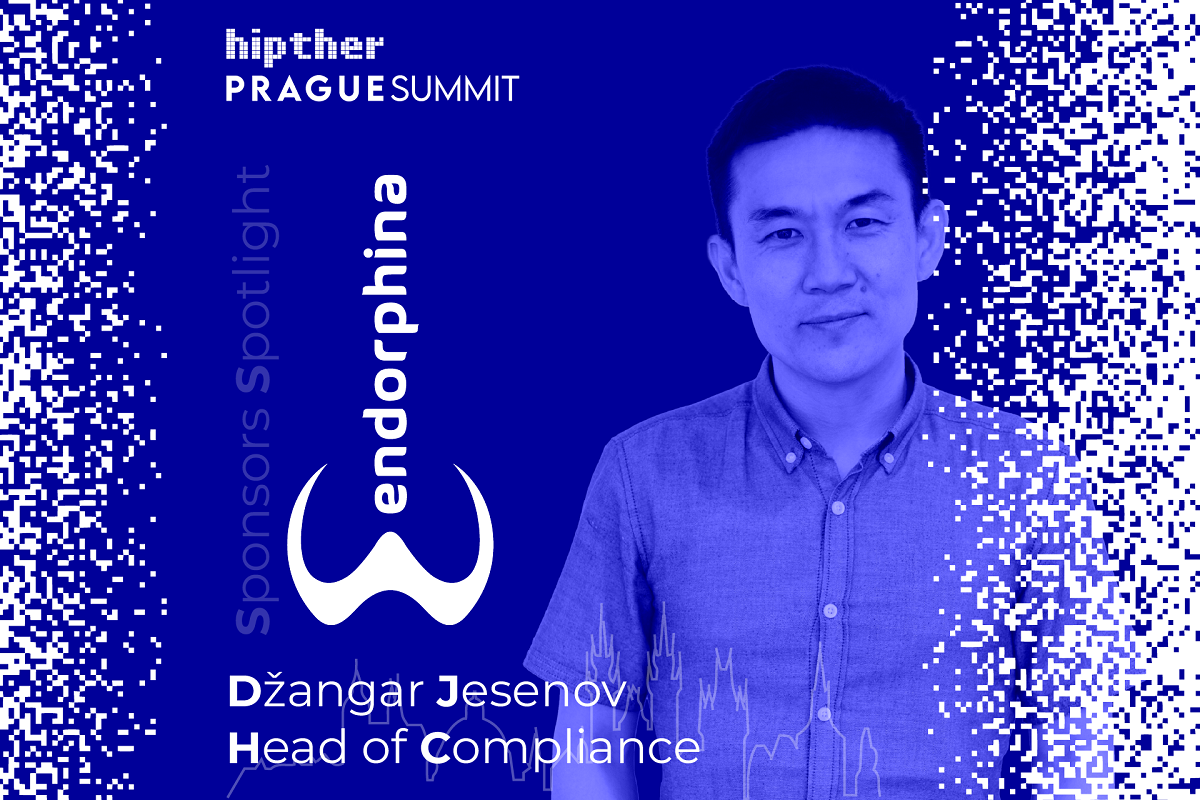
Ahead of the HIPTHER Prague Summit 2026, we speak with Džangar Jesenov, Head of Compliance at Endorphina, to explore how the company approaches regulatory excellence, market expansion, and certification in an increasingly complex global iGaming landscape – and how strong compliance frameworks support sustainable growth across Tier-1 European markets.
You have been leading Endorphina’s compliance function since 2021. How has the regulatory landscape in Europe evolved during this period, and what shifts have had the biggest operational impact on suppliers?
If I were to compare Endorphina in 2021 and Endorphina in 2026, I would describe them as two fundamentally different projects that nevertheless share the same core identity. The primary objective remains unchanged. However, the tools, scope, and operational framework used to achieve that objective have evolved significantly.
The development of the project reflects various external factors, including increasingly stringent regulatory requirements across multiple jurisdictions, technological advancements particularly within the financial sector and, importantly, substantial strengthening of human resources. Ultimately, people remain the most critical element in any successful project.
– From a regulatory perspective, I would particularly highlight the introduction and expansion of B2B licensing policies
Across jurisdictions on different continents, and the increased responsibility placed on game suppliers.
– Most notably, the heightened focus on player protection and security
In my view, enhanced player safety is one of the most important developments in the industry. Delivering engaging, high-quality games that are fully compliant with applicable legal frameworks is the foundation of any successful online platform and this is a commitment we uphold 24/7/365.
Endorphina has successfully expanded its presence across Tier-1 European markets. From a compliance perspective, what are the key pillars that enable smooth market entry and long-term sustainability?
In practice, there are unfortunately no “miracle tools” that would allow us to operate seamlessly at the highest regulatory level.
– I may not be saying anything new or particularly surprising here, but behind every jurisdiction we enter lies a substantial amount of work
Each market requires extensive hours of analysis, including a detailed review of regulatory obligations, comparison of local data requirements and reporting outputs, development of internal policies tailored to the specific regional framework, structured internal data sharing across project teams, and the implementation of oversight mechanisms to ensure compliance with newly introduced rules.
There is a significant amount of daily routine involved continuous processes, reporting, analysis, and, where necessary, re-implementation of procedures, including updates or revisions of internal regulatory frameworks.
Certification and regulatory alignment remain major challenges for many suppliers. How does Endorphina structure its internal processes to ensure efficiency while maintaining full regulatory integrity?
With the development of regulatory obligations, our practices in this area are also evolving. Compliance in the gambling business matures like fine wine. The more stable your team is, the stronger your position on the market becomes. Today, regulations are being introduced in many new jurisdictions where gambling was completely prohibited just a few years ago, and I see this as progress from a regulatory perspective.
– Our internal processes are continuously evolving toward the automation of data that does not require increased attention
Human resources are instead focused on information that is more relevant and requires deeper integrity.
With increasing focus on information security, responsible gaming, and technical standards, how do you see the role of compliance teams evolving within modern iGaming organisations?
As regulatory obligations continue to evolve, so does our practical experience in this area. Compliance in the gaming industry matures over time – much like fine wine.
– The more stable and experienced your team is, the stronger your position in the market becomes
Today, regulation is being introduced in many new jurisdictions where gambling was completely prohibited just a few years ago. I see this as a positive development and a clear indication of progress from a regulatory perspective.
Endorphina has built a reputation as a trusted slot provider with a strong global partner network. How should compliance, product development, and commercial teams collaborate today to support scalable growth?
As Head of Compliance, I believe scalable growth is only achievable when compliance, product development, and commercial teams operate in full alignment rather than in silos. Compliance must be involved from the earliest stages of market entry and product design to prevent delays, reduce regulatory risk, and support sustainable expansion.
– Product development should focus on modular, certification-ready solutions that allow efficient adaptation across multiple jurisdictions
Commercial strategy must remain closely aligned with regulatory feasibility, ensuring that opportunities are both attractive and compliant. Ultimately, stable and experienced teams are the key factor in building long-term, regulatorily resilient growth.
Looking ahead to the next 12–24 months, which regulatory or market developments should operators and suppliers be preparing for most carefully?
In this area, we are working very intensively. Looking ahead, I anticipate further increases in regulatory obligations, faster development of regulated markets, and structural changes in core online gaming products.”
– I expect deeper integration of games with the player environment, placing greater emphasis on individual profiling and personalization of each session
These evolving models will inevitably be reflected in regulatory frameworks, with a stronger focus on player protection and proper tax accountability. At the same time, regulators will increasingly compete to attract high-quality market participants, a category to which Endorphina clearly belongs.
In the near-term perspective, many of today’s processes will become standard industry practice, while additional requirements will emerge, particularly those linked to the accountability and oversight of key individuals within licensed entities.
Endorphina is the GamingTECH Awards Party & Ceremony Sponsor at HIPTHER Prague Summit 2026. What would you like operators, partners, and industry peers to take away from engaging with your team during the event?
Thank you for the opportunity to be among the first to welcome our friends. First and foremost, I would like to thank everyone who will be joining us in person in one of the most beautiful cities in the world, Prague.
I wish all participants a truly enjoyable experience.
– Make the most of every moment spent among inspiring people
Boost your personal endorphin levels and take the opportunity to get to know the Endorphina team more closely.
The post Endorphina Compliance Strategies Explained ahead of HIPTHER Prague Summit appeared first on Eastern European Gaming | Global iGaming & Tech Intelligence Hub.
AI
FlexPlay: building a platform made to grow with its partners
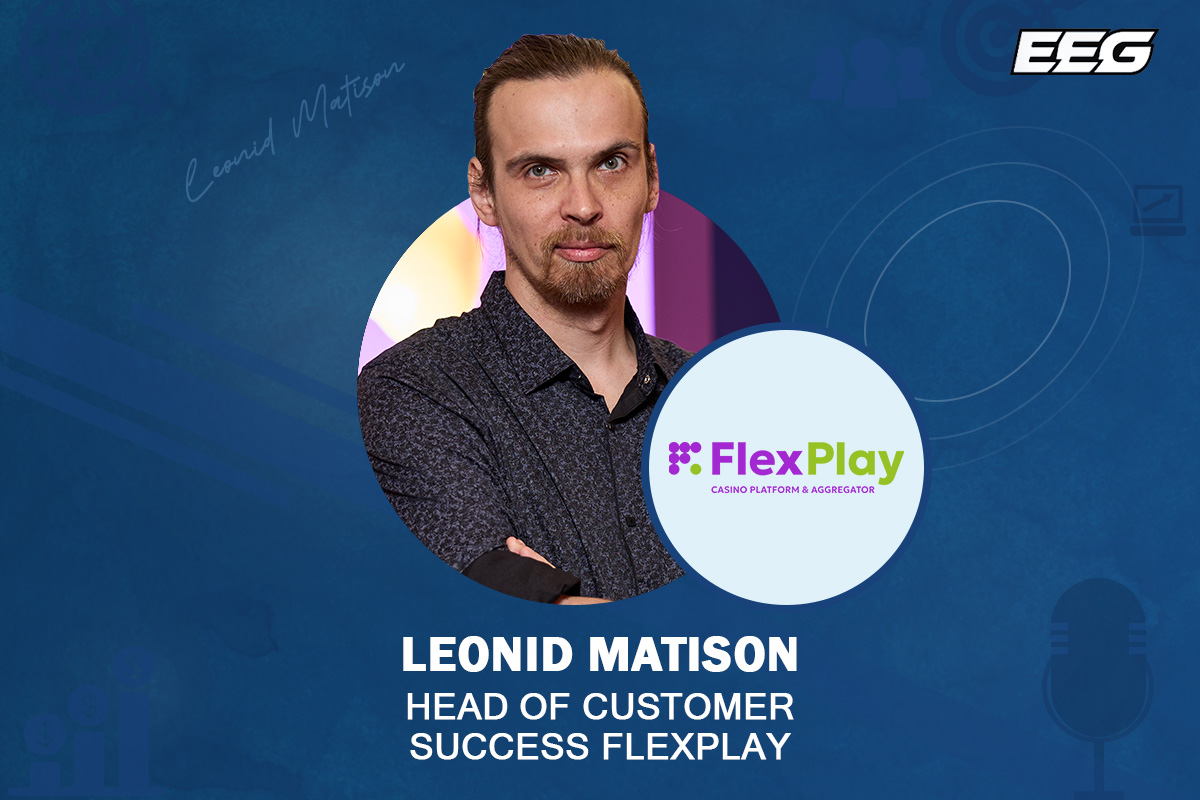
FlexPlay is entering a new phase with the launch of its own casino platform. Leonid Matison, Head of Customer Success, speaks with EEGaming about what inspired the company’s evolution, how it is helping partners adapt to change, and why a focus on flexibility, creativity, and collaboration is driving its vision for the future.
What inspired the move into the platform space, and how did that background shape your approach to creating it?
FlexPlay was born from EvenBet Gaming out of working closely with operators and studios as an aggregator, so we had a very clear view of where existing platforms were falling short. Many operators were forced to adapt their business models to rigid technology instead of the other way around.
Moving into the platform space was a natural evolution. We wanted to build a product that reflects how the market actually works today: fragmented regulation, fast-changing player behaviour, and the need to launch, test, and adapt quickly. That background shaped our approach significantly. Instead of building a “one-size-fits-all” platform, we focused on modularity, flexibility, and speed, so operators can grow without having to rebuild their infrastructure every time their strategy changes.
The platform market is full of established names. What makes FlexPlay stand out, and what kind of identity are you building for the brand?
Our differentiation isn’t about being louder or bigger — it’s about being more adaptable. FlexPlay is designed as a partner-centric platform, not a closed ecosystem.
We are building an identity around flexibility, transparency, and collaboration. Operators can customise their product, UX, content strategy, and growth roadmap instead of fitting into predefined templates. Commercially, we also remove unnecessary pressure at early stages, for example with models where partners don’t pay content fees until they actually start growing.
In a crowded market, identity comes from how you work with partners day-to-day, not just from features on a website.
You have described FlexPlay as a platform that “evolves alongside its partners.” What does that look like in practice for operators working with you?
We don’t treat launch as the finish line. We stay actively involved after go-live.
Operators receive ongoing support in analysing performance, adjusting content portfolios, testing new mechanics, and refining player engagement strategies. Our platform allows operators to add, remove, or prioritise content quickly, run experiments, and respond to real player data instead of assumptions.
We also actively listen to partner feedback and translate it into platform improvements. If a feature or workflow doesn’t serve operators in real conditions, we adjust it.
How does that flexibility help brands entering fast-changing or emerging markets where conditions can shift quickly?
Emerging markets rarely follow a stable or predictable path. This year, we are going to SiGMA Africa for the first time, and this continent is just the right example of how quickly and often market transforms. Regulation changes, payment preferences evolve, and player behaviour can shift very quickly.
FlexPlay’s flexibility allows operators to adapt without disruption: adjusting payment flows, reconfiguring bonuses, changing content focus, or localising UX. The platform isn’t locked into rigid structures, so operators can react to market signals in weeks rather than months.
This is especially important for brands entering highly volatile markets in Africa or LatAm, where the ability to pivot often determines success.
AI is a hot topic right now. How are you exploring its potential at FlexPlay, and what do you find most exciting about how it can genuinely support operators and players?
We approach AI very pragmatically. For us, it’s not about replacing people or creating black-box systems, but about enhancing decision-making.
We are exploring AI in areas like player segmentation, behavioural analysis, and content recommendations. It may help operators understand what players actually want and when. AI can also support smarter lobbies, more relevant promotions, and better detection of engagement patterns.
What excites us most is AI’s ability to reduce noise. It can highlight what truly matters and help them act faster and more confidently. But it can’t and will not fully replace strategic decision-making by humans.
Personalisation has become an essential part of modern player engagement. What does it mean to you in practice, and how is FlexPlay helping operators bring it to life?
For us, personalisation means relevance. Not just visuals or messages, but the entire player journey. FlexPlay enables operators to segment players based on behaviour, preferences, and performance, and then tailor content, bonuses, and communication accordingly. This helps players discover games that actually match their interests instead of scrolling through endless lobbies.
Good personalisation improves retention and trust. Players feel understood rather than pushed, and operators benefit from stronger long-term engagement.
But we suggest avoiding over-personalisation: if the players see only the recommended “long tail”, it may affect the operator’s revenue. Manual curation in addition to personalisation (like featuring a seasonal game during a holiday, or an operator’s personal favourite) allows for strategic promotions and branding.
Growth can be exciting but also challenging for operators. How do you and your team at FlexPlay support partners as they take that next step?
Growth often exposes weaknesses in technology or strategy. Our role is to help operators scale without losing control.
We support partners with analytics, reviews, and strategic guidance, helping them prioritise what to scale and what to optimise first. Technically, the platform is built to handle growth without forcing structural changes. Commercially, we remain flexible so that a transition is easier for operators.
Looking ahead, what are the key milestones or developments you are focused on for the year ahead?
Our focus is on deepening platform intelligence and partner value. This includes expanding AI-driven tools, improving content discoverability, and enhancing automation where it adds efficiency.
We are also investing in better insights for operators: not just reporting, but actionable recommendations that help them make smarter decisions faster.
Another priority is continuing to refine our platform based on real partner use cases, not theoretical ones.
And finally, when you think about FlexPlay’s future, what do you hope the company will represent within the wider iGaming industry?
I hope FlexPlay will be seen as a trusted growth partner — a company that helped operators build sustainable businesses rather than short-term results.
In an industry that often focuses on speed and scale, we want to represent balance: technology that adapts, content that makes sense, and partnerships built on mutual success.
If operators look back and say, “FlexPlay helped us grow the right way,” that will be the real measure of success.
The post FlexPlay: building a platform made to grow with its partners appeared first on Eastern European Gaming | Global iGaming & Tech Intelligence Hub.
boutique studios
Movers and Shakers: The blueprint for boutique studios looking to crack America
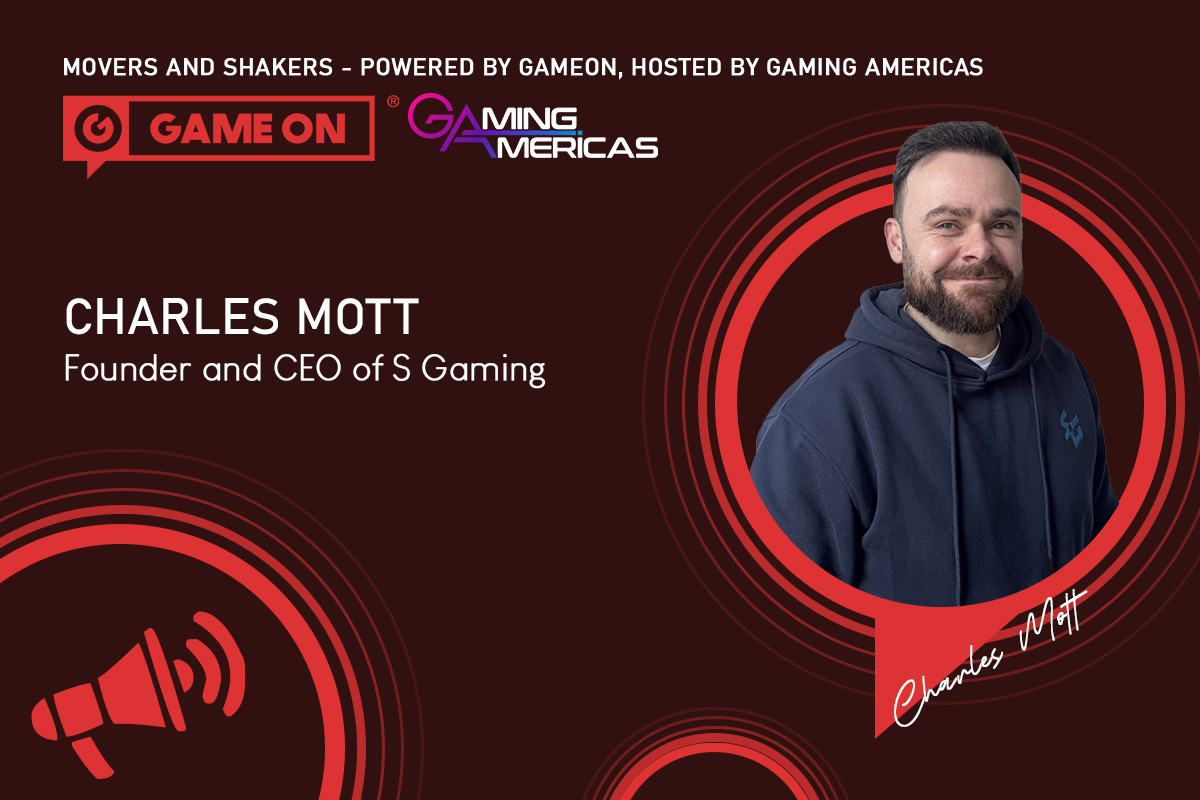
“Movers and Shakers” is a dynamic monthly column dedicated to exploring the latest trends, developments, and influential voices in the iGaming industry. Powered by GameOn and supported by HIPTHER, this op-ed series delves into the key players, emerging technologies, and regulatory changes shaping the future of online gaming. Each month, industry experts offer their insights and perspectives, providing readers with in-depth analysis and thought-provoking commentary on what’s driving the iGaming world forward. Whether you’re a seasoned professional or new to the scene, “Movers and Shakers” is your go-to source for staying ahead in the rapidly evolving iGaming landscape.
Charles Mott, Founder and CEO of S Gaming, says finding success in the US is a tough task, but that studios who can replicate the magic of the casino floor have what it takes to make it stateside
There are plenty of European studios that have set their sights on finding success in the US, but very few have actually managed to achieve it. This is because they are making a common mistake, and that’s failing to translate the preferences of US slot players into their games.
For more than a decade now, the UK and European markets have been defined by “the chase” – high volatility slots with massive, infrequent max wins and jackpots that deliver anticipation and thrills, but that also exhaust the player’s balance in minutes.
But if you walk on to the floor of any Las Vegas casino, the atmosphere is different. It’s about “time at machine”. It’s the neon, the regular dopamine hits of smaller wins and the ability to make $100 provide an entire evening’s worth of entertainment.
As the US market increasingly moves to online, with more states embracing regulated iGaming, it’s no longer finding its feet with players now actively looking for a digital version of the land-based soul they have loved for many years.
Moving away from the “big win” to the “long session”
US players have been culturally conditioned by the physical casino experience. Unlike the high-stakes digital environment of Europe, the American player often views slots as a leisure activity rather than a jackpot hunt.
This is why S Gaming has focused on fun, entertainment and sustainability, with our games matching the “steady tortoise” cadence of land-based slot machines. They still deliver lots of big win potential, but across longer and more engaging sessions.
For operators like BetMGM and Fanatics, both of which we’ve recently partnered with, it’s not just about fun, it’s about retention.
A player who loses their balance in three minutes is a churn risk, but a player who wins small, frequent prizes stays in the ecosystem for longer and ultimately generates a much higher lifetime value.
Efficiency over ego
But it’s not just about having the right games, distribution is also key to cracking America. This is a notoriously difficult market because it’s not one jurisdiction, it’s five (and counting) regulatory islands and in each, you need to secure regulatory approvals.
This is actually a moat that keeps many smaller studios out. It’s an issue we had to overcome, and ultimately looked for a partner that could help us bridge the gap. Our agreement with Gaming Realms allows us to use its remote game server and licences to launch into US states.
This “Infrastructure-as-a-Service” model allows a studio to focus on “game grammar” (math and art) while the partner handles the “plumbing” (compliance and connectivity). It’s the leanest way to hit the ground running with a tier-one operator across multiple states simultaneously.
Why tier ones are buying in
You might be wondering why a tier one giant like BetMGM has joined forces with a boutique UK studio and facilitated its launch into the US.
But the reality is that operators are fighting soaring acquisition costs right now and this means they no longer want more games, they want differentiated games that reduce churn and keep players coming back for more.
Our focus on sustainable entertainment aligns with current US regulatory requirements and the focus on responsible gaming. Games designed for longer, lower stakes sessions are inherently “safer” and more palatable to regulators and risk-averse operators alike.
And they just hit the mark more with players. Sure, winning is a big part of playing online slots, but how you get to the win and the perceived entertainment value is now just as if not more so important – not just in the US but in the UK and Europe, too.
The data-driven evolution
Success does not come from a single launch – it comes from having a feedback loop. We now have a handful of games live in the US market, including our flagship Triple 7 Jackpot title, from which we are gathering real-time data on player behaviour.
This is allowing us to move from “what we think players want” to “what the data tells us they love” and this in turn is allowing us to refine our product roadmap and the games we are producing for the US market, ensuring each title is more culturally resonant than the last.
The new era of transatlantic growth
Cracking America in 2026 isn’t about having the loudest brand of the biggest marketing budget – it’s about understanding the psychology of the casino floor.
The studio’s that succeed will be those that realise the US player isn’t looking for a new way to gamble, they’re looking for a digital version of the “Vegas” feeling they’ve known and loved for decades.
The post Movers and Shakers: The blueprint for boutique studios looking to crack America appeared first on Americas iGaming & Sports Betting News.
-

 BIS SIGMA7 days ago
BIS SIGMA7 days agoBrazil between expansion and fiscal pressure
-

 Central Europe6 days ago
Central Europe6 days agoPowering the Next Generation of Online Casinos: Inside DSTGAMING’s Scalable iGaming Ecosystem
-

 Adjusted EBITDA5 days ago
Adjusted EBITDA5 days agoBragg Gaming Announces Select Preliminary Unaudited Fourth Quarter and Full Year 2025 Financial Results, and Issues Full Year 2026 Guidance
-

 BIS SIGMA7 days ago
BIS SIGMA7 days agoBrasil entre la expansión y la presión fiscal
-

 Bagley-Keene Act5 days ago
Bagley-Keene Act5 days agoCalifornia Gambling Control Commission Issues Critical Guidance on Stakeholder Communications and Ex Parte Rules
-

 Alberta iGaming Corporation6 days ago
Alberta iGaming Corporation6 days agoAlberta iGaming Corporation Partners with Responsible Gambling Council
-

 Habanero6 days ago
Habanero6 days agoRacing Royalty — Habanero’s High-Speed Hold-and-Ride Thrill
-

 BGaming6 days ago
BGaming6 days agoBrace for Impact — BGaming’s Rocket Eruption: Triple Blast






